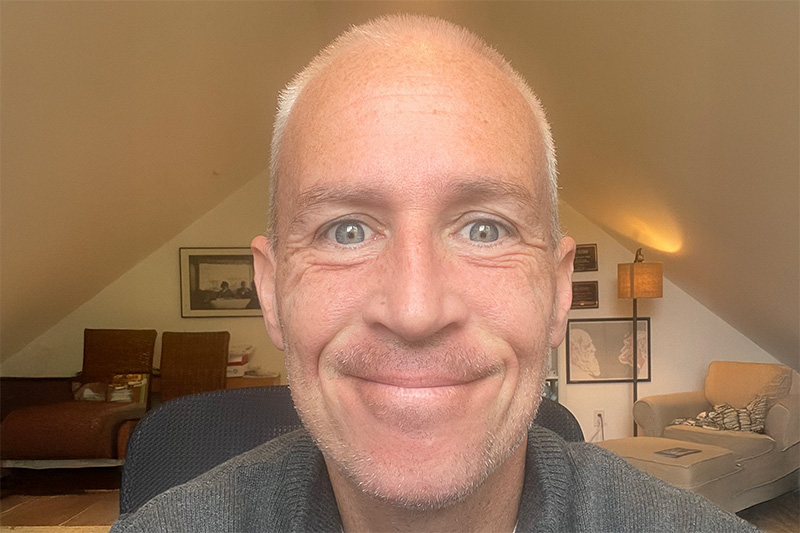Experts with the Regional Gun Violence Research Consortium (RGVRC) address different facets of firearm violence from a variety of perspectives and disciplines. In this new series, get to know our experts and learn more about their contributions to better understand, prevent, and respond to the public health crisis of firearm violence. Meet Michael Anestis, a member of the RGVRC and the executive director of the New Jersey Gun Violence Research Center at Rutgers University.
Why do you study gun violence? Why is this an important area of research, and how do you see your work helping to address this issue?
Even before I knew exactly what I wanted to do, I knew that I wanted to make sure that whatever job I ended up in challenged me and added some good to the world. Gun violence research checks both of those boxes.
There are so many reasons that I feel gun violence prevention science is important. The work that so many folks in this field do saves lives on a daily basis and gets us closer to preventing tragedies that derail families’ lives. These days, it also feels like an act of patriotic rebellion in that the federal government—and some state governments—have gone out of their way to once again make this a particularly difficult topic to study. Continuing to work in this space and trying to help train the next generation feels like a way to push back against such injustice and to go where the work is needed.
On a more personal note, although I grew up in the northeast and consider that area of the country my true home, I spent a large portion of my career working in the deep south, where gun violence rates are quite high and the resources and political will to investigate gun violence research simply aren’t there. Doing this work feels, to me, like a chance to do something for a place I called home for a long time and to ensure that, when I took my current job, I didn’t simply leave that community behind.
What is your research focus related to gun violence? What are you currently researching?
I consider firearm suicide prevention to be my life’s work. Around 60 percent of all gun deaths in the US are suicides, and over half of all US suicides result from self-inflicted gunshot wounds. Research has shown us that the only tool we have ever used that has been shown to reliably, meaningfully, and sustainably reduce community suicide rates is means safety—making specific, frequently used, and highly lethal suicide methods either less deadly or less readily available for a suicide attempt. In the US, that means that suicide prevention must have a substantial focus on firearms, so that has driven me to remain focused in this space since my early days as a professor.
Currently, I am working on several things, but the most prominent line of work involves disseminating Project Safe Guard (PSG), a lethal means counseling intervention that uses the principles of motivational interviewing, to a variety of communities. Along with partners like Craig Bryan and Adam Walsh, I’m helping lead a project in which we are training members of the National Guard to be PSG trainers themselves, helping the Guard to integrate the intervention into their primary prevention initiatives, and ensuring that National Guard personnel receive lethal means counseling as a standard part of life. In this project, we’re also giving biometric lockboxes to everyone who attends our trainings, so we are hopeful that we’re providing a roadmap for secure firearm storage within a community that has terribly high rates of firearm suicide.
I am also working with great partners at Ohio State to test an online version of PSG, either preceded or followed by an intervention focused on alleviating intolerance of uncertainty, with the hope of seeing if we can enhance the efficacy of the treatment for folks who struggle more with hypervigilance and anxiety. That randomized controlled trial (RCT) is nearly done with recruitment, so we’ll soon be in the exciting phase of data analysis.
More locally, I have been working with my team at the New Jersey Gun Violence Research Center to try and provide PSG trainings for faith leaders and barbers across New Jersey in the hopes of providing some tools to members of the community who are trusted with sensitive topics and not generally seen as having a political agenda related to firearms.
What do you hope that people can take away from the research you are conducting?
I often tell my trainees that the world is messy and people are complicated. It is easy to see folks who look through a different lens than you and judge them or tell them that they should simply become like you. Having spent so much time living and working in a community—south Mississippi—where most people have different political views than I do, it became apparent to me how ineffective that approach can be, particularly on sensitive issues. So I hope that folks come away from my research realizing that, even in these times of political discord, people are people and that we accomplish more when we approach things with humility and simply do what we can to empower people to make their own decisions and adopt safety through approaches that align with their culture and identity. We do not have to agree with folks on everything to work with them on anything, and if my work has taught me one specific lesson, it’s that nobody wants anyone to die by suicide and that effective messaging and honest listening can help people who disagree strongly on important issues to nonetheless find common ground on suicide prevention.
Learn more about Michael and his work for the Regional Gun Violence Research Consortium below.

